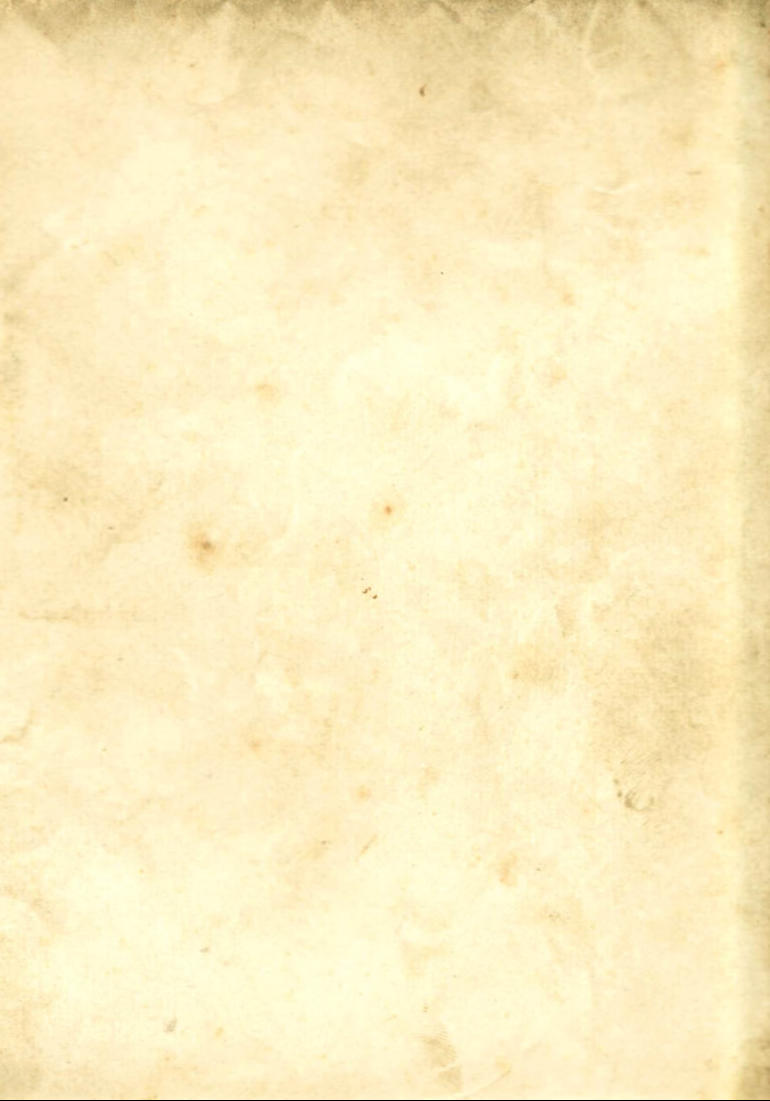
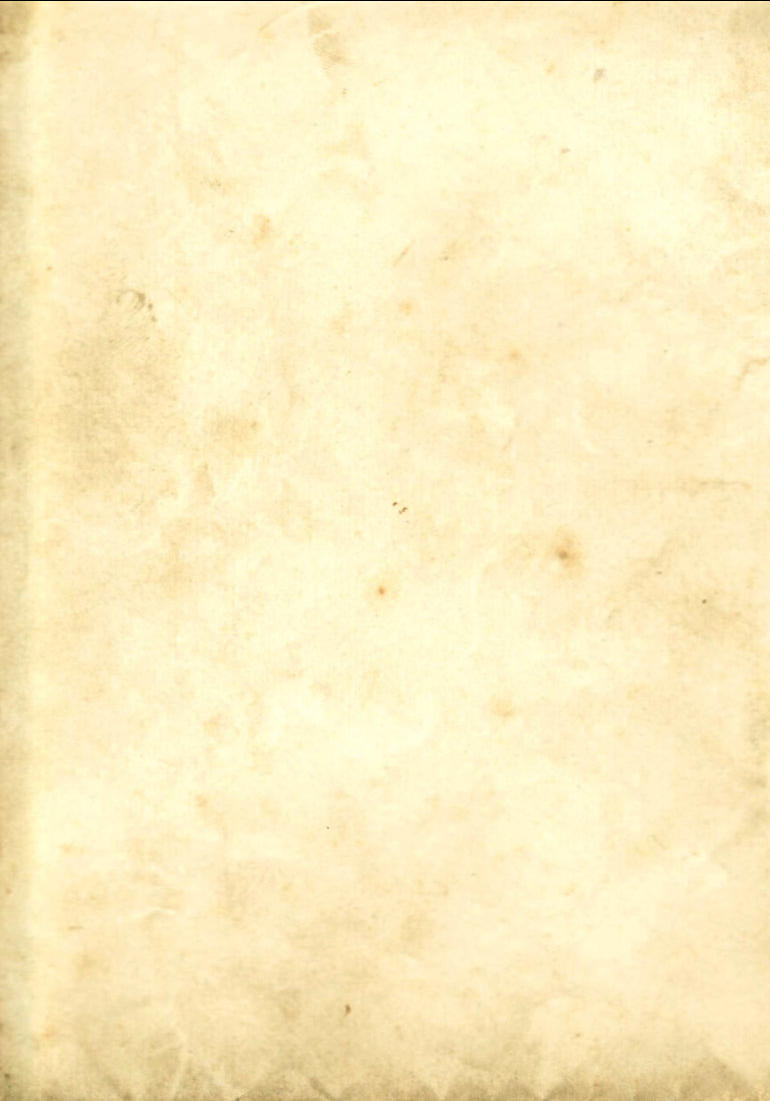
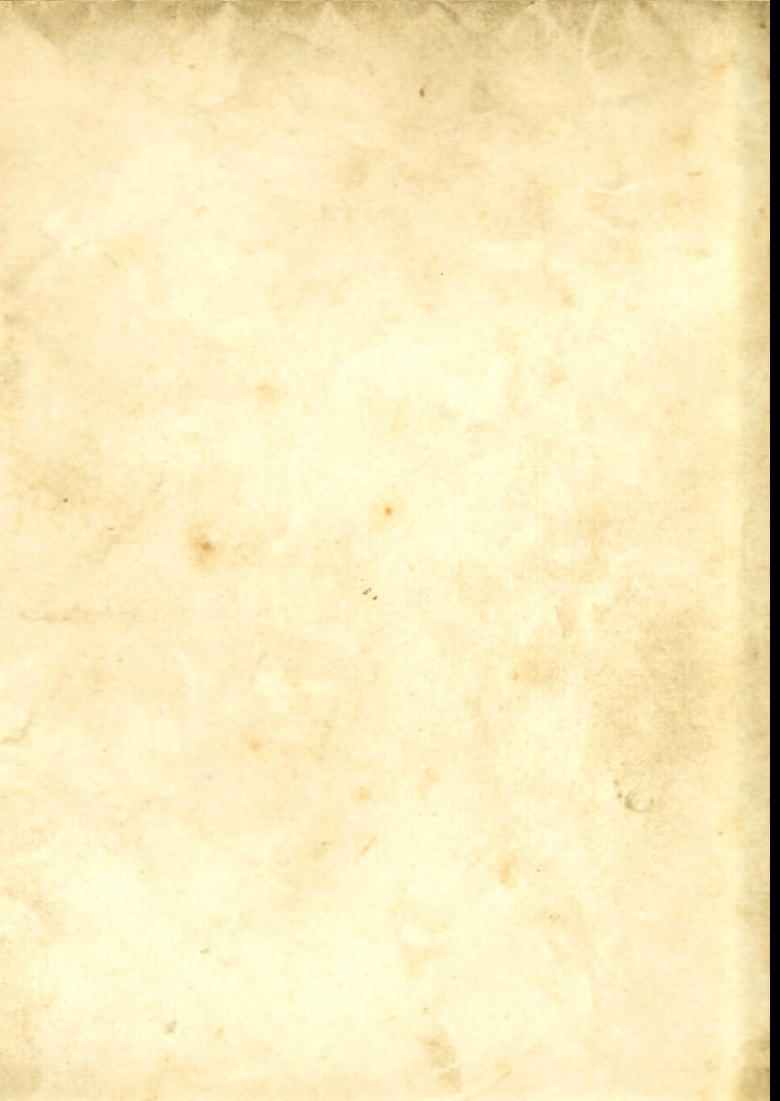
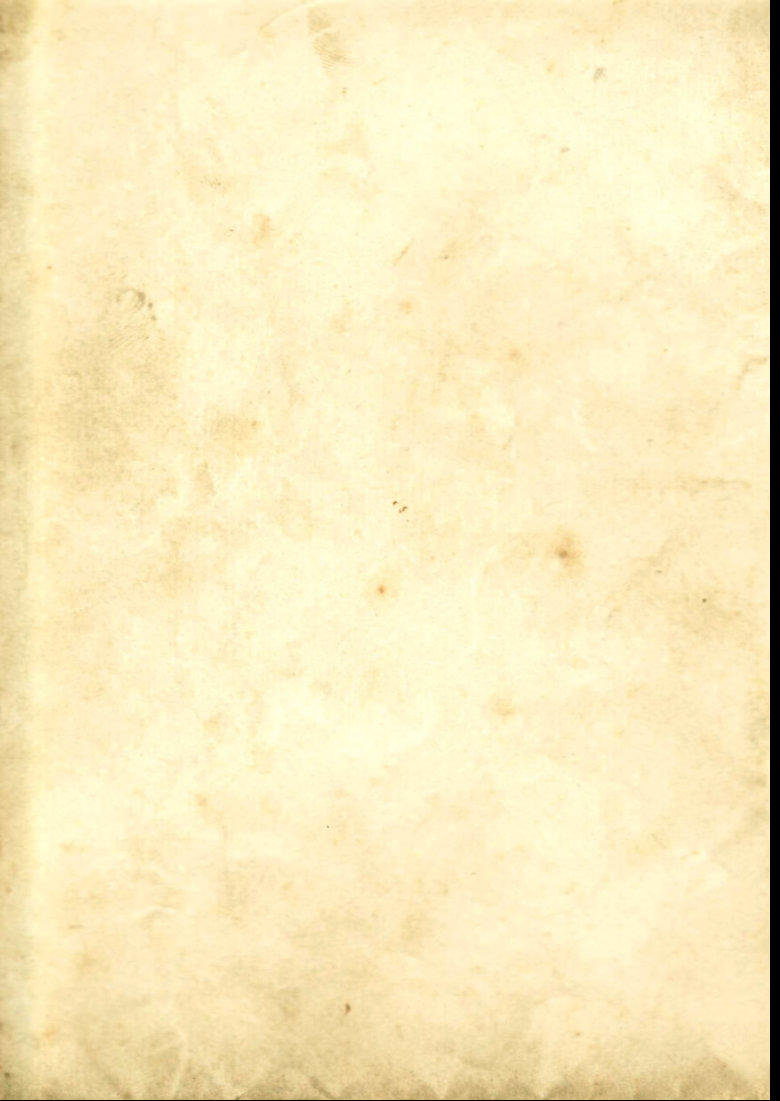
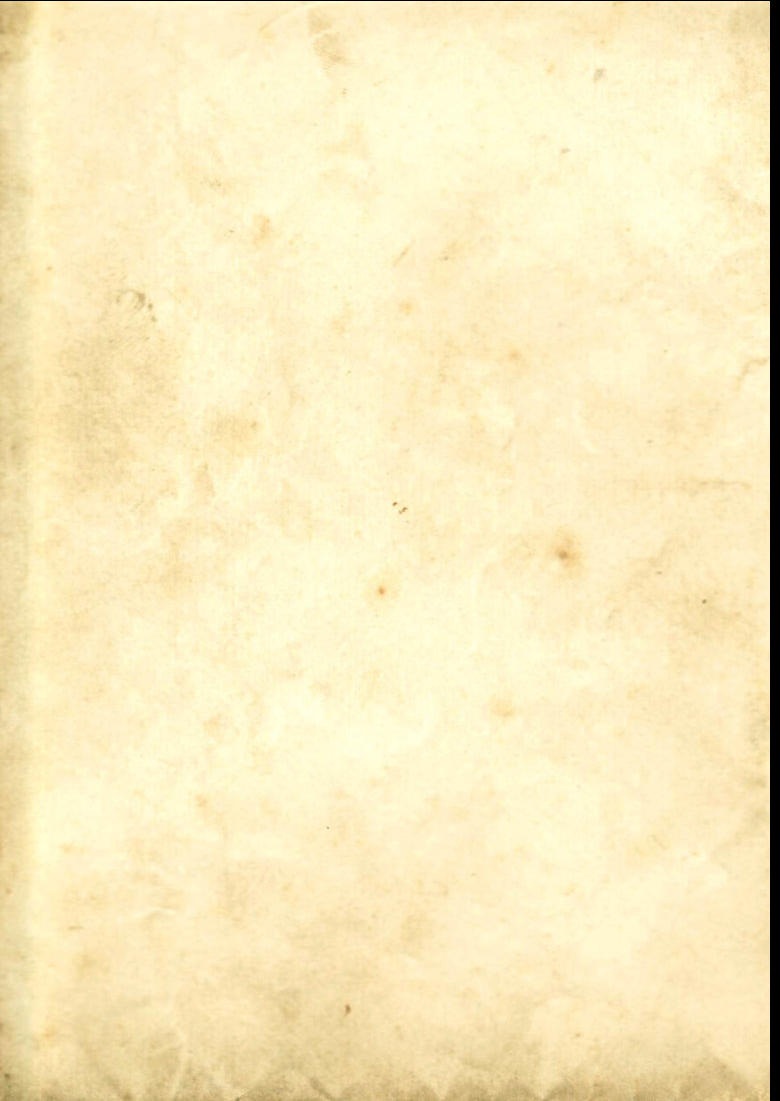
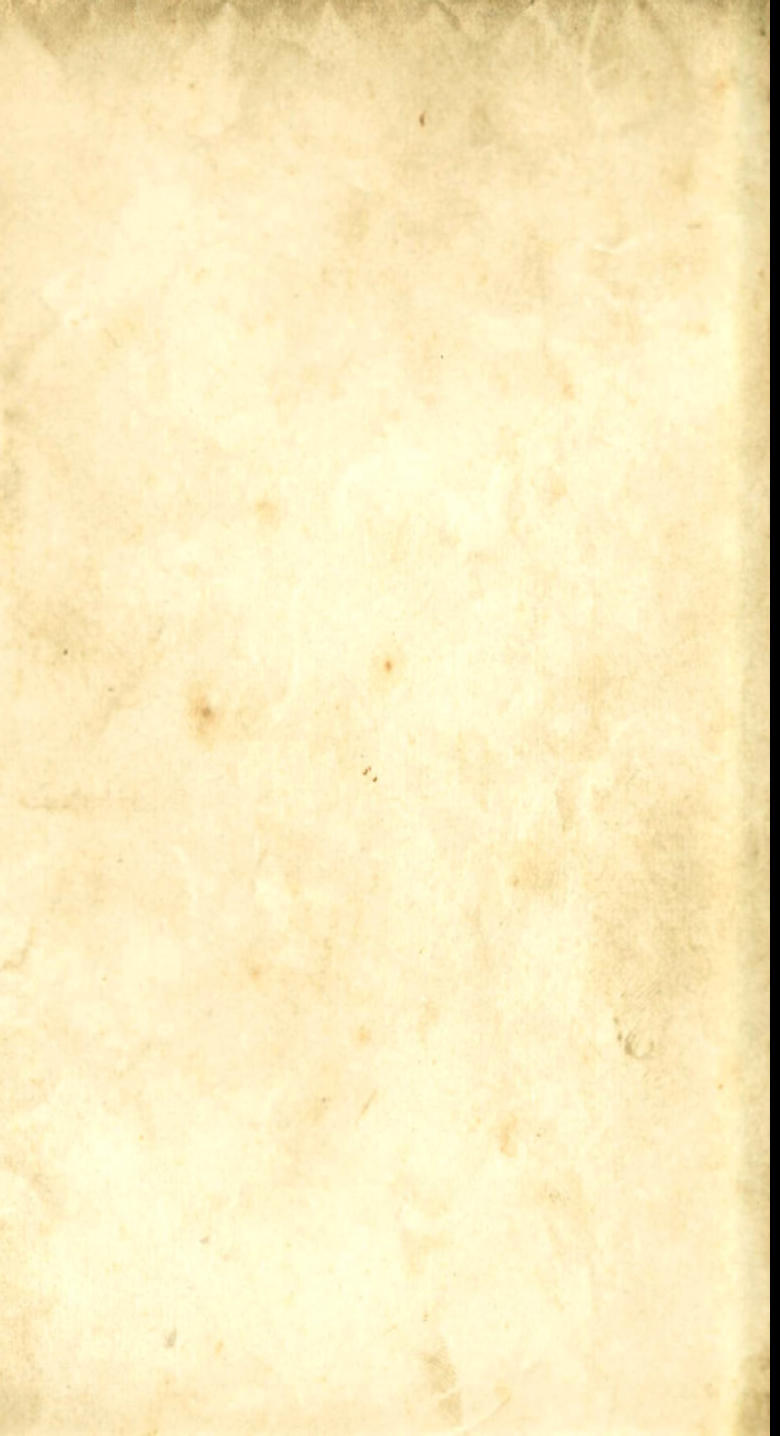
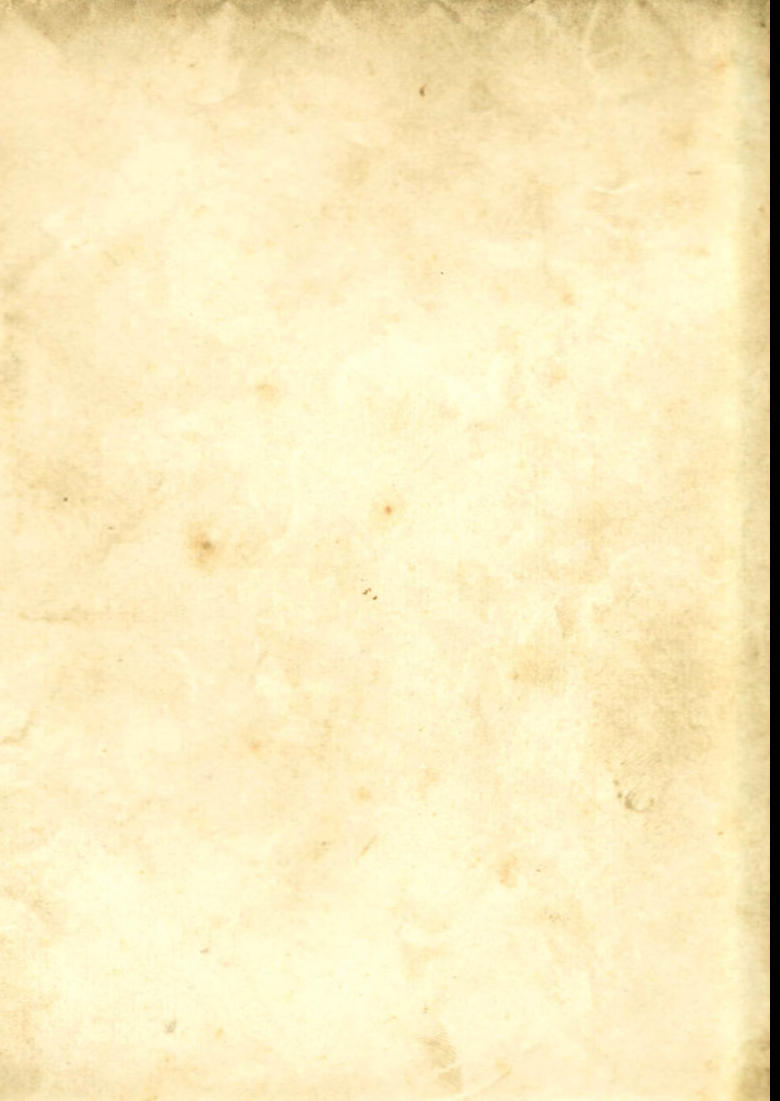
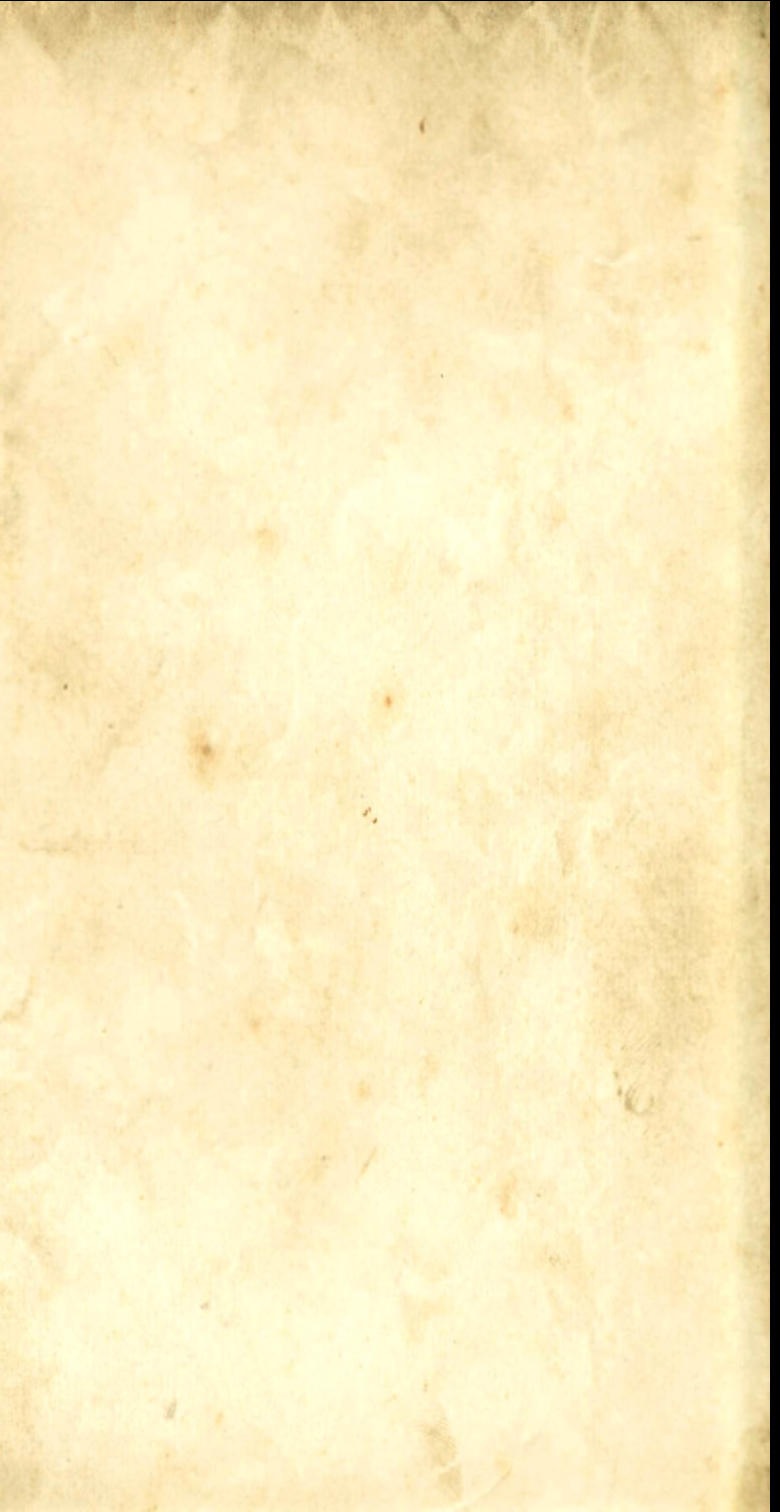
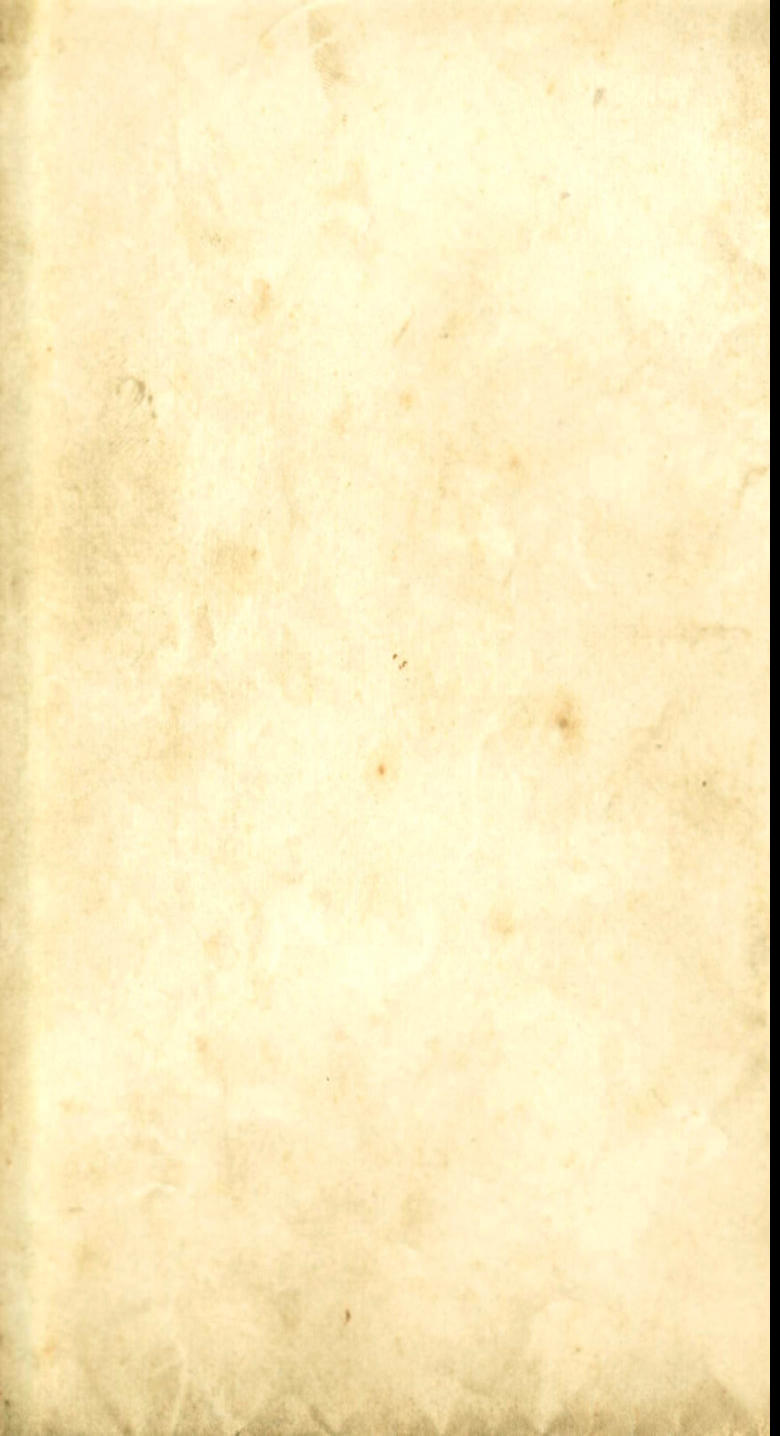






















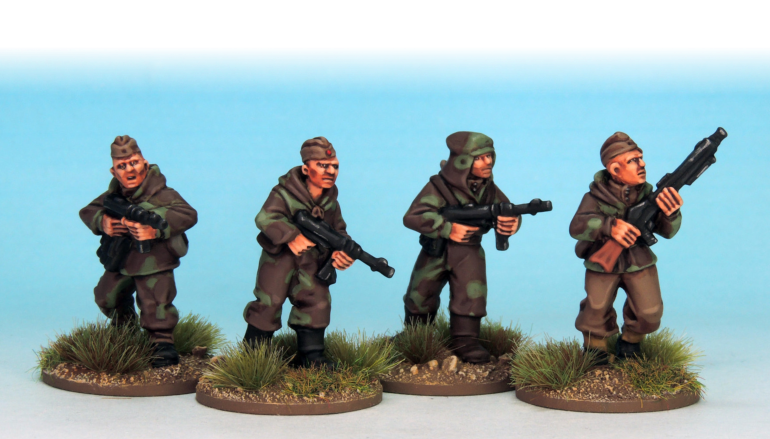
NICK’S WORK
I was inspired to try this style of painting by Nick’s epic painting of his ACW armies (when I say inspired I was
painting of his ACW armies (when I say inspired I was really just copying!). Now I have not painted anything like
really just copying!). Now I have not painted anything like the numbers he managed to get on the table but his
the numbers he managed to get on the table but his methods certainly signposted the way to achieve larger
methods certainly signposted the way to achieve larger numbers of troops on the table while still getting a good
numbers of troops on the table while still getting a good standard of work. The nice thing too is that this style is
standard of work. The nice thing too is that this style is good for all sorts of models, from the more uncomplicated
good for all sorts of models, from the more uncomplicated models like the Soviets I am using here (a good starting
models like the Soviets I am using here (a good starting point these) to anything almost you can think of, as I said
point these) to anything almost you can think of, as I said Nick used it very successfully on ACW troops, but I see no
reason not to try it out on anything that’s takes your fancy.
KEV’S WORK
Having said all that I did in the end fiddle with Nick’s style
Nick used it very successfully on ACW troops, but I see no
reason not to try it out on anything that’s takes your fancy.
KEV’S WORK
Having said all that I did in the end fiddle with Nick’s style a bit, and then realised this style is even more flexible
a bit, and then realised this style is even more flexible than I thought, because you can stop at whatever level of
than I thought, because you can stop at whatever level of finish you like, and still have a good troops that you won’t
finish you like, and still have a good troops that you won’t be ashamed to put on the table.
be ashamed to put on the table.  STARTING
The models are cleaned up before painting. This is
STARTING
The models are cleaned up before painting. This is removing any metal on the models that is there as a result
removing any metal on the models that is there as a result of the moulding process, like vents and sprues, with
of the moulding process, like vents and sprues, with clippers, and then carefully filing down moulding line that
clippers, and then carefully filing down moulding line that can sometime appear on the models.
can sometime appear on the models. PRIMING
I tend now to prime everything I paint with grey car primer.
PRIMING
I tend now to prime everything I paint with grey car primer. It’s not essential if you are black-undercoating, but as
It’s not essential if you are black-undercoating, but as 
 painting of his ACW armies (when I say inspired I was
painting of his ACW armies (when I say inspired I was really just copying!). Now I have not painted anything like
really just copying!). Now I have not painted anything like the numbers he managed to get on the table but his
the numbers he managed to get on the table but his methods certainly signposted the way to achieve larger
methods certainly signposted the way to achieve larger numbers of troops on the table while still getting a good
numbers of troops on the table while still getting a good standard of work. The nice thing too is that this style is
standard of work. The nice thing too is that this style is good for all sorts of models, from the more uncomplicated
good for all sorts of models, from the more uncomplicated models like the Soviets I am using here (a good starting
models like the Soviets I am using here (a good starting point these) to anything almost you can think of, as I said
point these) to anything almost you can think of, as I said Nick used it very successfully on ACW troops, but I see no
reason not to try it out on anything that’s takes your fancy.
KEV’S WORK
Having said all that I did in the end fiddle with Nick’s style
Nick used it very successfully on ACW troops, but I see no
reason not to try it out on anything that’s takes your fancy.
KEV’S WORK
Having said all that I did in the end fiddle with Nick’s style a bit, and then realised this style is even more flexible
a bit, and then realised this style is even more flexible than I thought, because you can stop at whatever level of
than I thought, because you can stop at whatever level of finish you like, and still have a good troops that you won’t
finish you like, and still have a good troops that you won’t be ashamed to put on the table.
be ashamed to put on the table.  STARTING
The models are cleaned up before painting. This is
STARTING
The models are cleaned up before painting. This is removing any metal on the models that is there as a result
removing any metal on the models that is there as a result of the moulding process, like vents and sprues, with
of the moulding process, like vents and sprues, with clippers, and then carefully filing down moulding line that
clippers, and then carefully filing down moulding line that can sometime appear on the models.
can sometime appear on the models. PRIMING
I tend now to prime everything I paint with grey car primer.
PRIMING
I tend now to prime everything I paint with grey car primer. It’s not essential if you are black-undercoating, but as
It’s not essential if you are black-undercoating, but as 
FAST PAINTING SOVIETS
WW2 Soviets Scouts with German Weapons
often as not I am photographing them for our websites in grey before they get painted, so it is has become
grey before they get painted, so it is has become convenient for me to prime all the models I get. And for
convenient for me to prime all the models I get. And for this particular painting method it is also useful if your
this particular painting method it is also useful if your troops happen to be dressed in grey.
troops happen to be dressed in grey. The next stage is priming them again! Here I have chosen
The next stage is priming them again! Here I have chosen to most appropriate colour for these particular troops
to most appropriate colour for these particular troops which was The Army Painter Army Green Colour
which was The Army Painter Army Green Colour Primer Spray, but could have been Leather Brown. You
Primer Spray, but could have been Leather Brown. You need to assess which colour your troops have the most of,
need to assess which colour your troops have the most of, and pick a primer accordingly. Or you can miss out the
and pick a primer accordingly. Or you can miss out the colour primer stage and go straight to brush painting them
colour primer stage and go straight to brush painting them in the colours you require.
in the colours you require.  Once the primer is dry (usually left overnight if I can), I
Once the primer is dry (usually left overnight if I can), I glue the model to a small scarp of card so I can hold him
glue the model to a small scarp of card so I can hold him without touching the model itself whilst painting.
without touching the model itself whilst painting.
 grey before they get painted, so it is has become
grey before they get painted, so it is has become convenient for me to prime all the models I get. And for
convenient for me to prime all the models I get. And for this particular painting method it is also useful if your
this particular painting method it is also useful if your troops happen to be dressed in grey.
troops happen to be dressed in grey. The next stage is priming them again! Here I have chosen
The next stage is priming them again! Here I have chosen to most appropriate colour for these particular troops
to most appropriate colour for these particular troops which was The Army Painter Army Green Colour
which was The Army Painter Army Green Colour Primer Spray, but could have been Leather Brown. You
Primer Spray, but could have been Leather Brown. You need to assess which colour your troops have the most of,
need to assess which colour your troops have the most of, and pick a primer accordingly. Or you can miss out the
and pick a primer accordingly. Or you can miss out the colour primer stage and go straight to brush painting them
colour primer stage and go straight to brush painting them in the colours you require.
in the colours you require.  Once the primer is dry (usually left overnight if I can), I
Once the primer is dry (usually left overnight if I can), I glue the model to a small scarp of card so I can hold him
glue the model to a small scarp of card so I can hold him without touching the model itself whilst painting.
without touching the model itself whilst painting.

Inspired by Nick to have a go at a different
painting method
Kev Dallimore
HIGHLIGHTING
Well it’s not really actual highlighting, it’s painting the colours back in that you have gone all over with the brown
colours back in that you have gone all over with the brown wash, the same colours go over where they were before,
wash, the same colours go over where they were before, however leave some of the brown washed areas in the
however leave some of the brown washed areas in the depressions and creases to give the shading effect. On
depressions and creases to give the shading effect. On the flesh area I have left some washed areas showing on
the flesh area I have left some washed areas showing on the face to represent five-o’clock shadow. Essentially
the face to represent five-o’clock shadow. Essentially 
 colours back in that you have gone all over with the brown
colours back in that you have gone all over with the brown wash, the same colours go over where they were before,
wash, the same colours go over where they were before, however leave some of the brown washed areas in the
however leave some of the brown washed areas in the depressions and creases to give the shading effect. On
depressions and creases to give the shading effect. On the flesh area I have left some washed areas showing on
the flesh area I have left some washed areas showing on the face to represent five-o’clock shadow. Essentially
the face to represent five-o’clock shadow. Essentially 
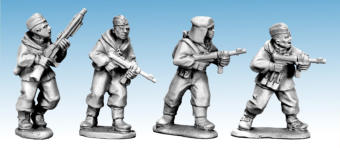
PAINTING
All of the paints and washes used are from The Army Painter, as is the colour primer.
I was painting eight models, four primed green and four
Painter, as is the colour primer.
I was painting eight models, four primed green and four primed brown. But they all followed along similar lines.
primed brown. But they all followed along similar lines. The real key here is to be neat; this might be a bit slower
The real key here is to be neat; this might be a bit slower but will pay off in the long run when they are finished and
but will pay off in the long run when they are finished and this is good practise if you chose to use another style of
this is good practise if you chose to use another style of painting later on your other models.
painting later on your other models. BLOCKING IN
This is painting in all of the colours neatly ready for
BLOCKING IN
This is painting in all of the colours neatly ready for shading. It doesn’t really matter what order to paint
shading. It doesn’t really matter what order to paint colours, but I like to start with the flesh.
Now I carried on with each colour in turn, being as neat as
colours, but I like to start with the flesh.
Now I carried on with each colour in turn, being as neat as I can, given that I want to do these models reasonably
I can, given that I want to do these models reasonably quickly. The colours used are as follows in the order I did
quickly. The colours used are as follows in the order I did them.
Barbarian Flesh – hands and face.
them.
Barbarian Flesh – hands and face. Werewolf Fur – amoeba camouflage pattern.
Monster Brown – uniforms were showing and caps,
Werewolf Fur – amoeba camouflage pattern.
Monster Brown – uniforms were showing and caps, backpack and gaiters.
backpack and gaiters.  Castle Grey – water bottles.
Castle Grey – water bottles. Oak Brown – leather straps and brown boots.
Oak Brown – leather straps and brown boots.  Fur Brown – hair and wooden parts on the guns.
Fur Brown – hair and wooden parts on the guns. Hardened Carapace – metal guns, black boots, hair
Hardened Carapace – metal guns, black boots, hair and SMG magazine pouches.
Hemp Rope – gaiters.
and SMG magazine pouches.
Hemp Rope – gaiters. Desert Yellow – padded jacket.
FINISH HERE
You could stop here, varnish and base them up and have
Desert Yellow – padded jacket.
FINISH HERE
You could stop here, varnish and base them up and have respectable, but more toy like, soldiers on the tabletop
respectable, but more toy like, soldiers on the tabletop (I’m not saying toy like is not as good, it’s just a different
(I’m not saying toy like is not as good, it’s just a different look). Or you can carry on the next stage. (Perhaps I
look). Or you can carry on the next stage. (Perhaps I should write the next painting article as a program
should write the next painting article as a program paragraph book…)
paragraph book…) 
 Painter, as is the colour primer.
I was painting eight models, four primed green and four
Painter, as is the colour primer.
I was painting eight models, four primed green and four primed brown. But they all followed along similar lines.
primed brown. But they all followed along similar lines. The real key here is to be neat; this might be a bit slower
The real key here is to be neat; this might be a bit slower but will pay off in the long run when they are finished and
but will pay off in the long run when they are finished and this is good practise if you chose to use another style of
this is good practise if you chose to use another style of painting later on your other models.
painting later on your other models. BLOCKING IN
This is painting in all of the colours neatly ready for
BLOCKING IN
This is painting in all of the colours neatly ready for shading. It doesn’t really matter what order to paint
shading. It doesn’t really matter what order to paint colours, but I like to start with the flesh.
Now I carried on with each colour in turn, being as neat as
colours, but I like to start with the flesh.
Now I carried on with each colour in turn, being as neat as I can, given that I want to do these models reasonably
I can, given that I want to do these models reasonably quickly. The colours used are as follows in the order I did
quickly. The colours used are as follows in the order I did them.
Barbarian Flesh – hands and face.
them.
Barbarian Flesh – hands and face. Werewolf Fur – amoeba camouflage pattern.
Monster Brown – uniforms were showing and caps,
Werewolf Fur – amoeba camouflage pattern.
Monster Brown – uniforms were showing and caps, backpack and gaiters.
backpack and gaiters.  Castle Grey – water bottles.
Castle Grey – water bottles. Oak Brown – leather straps and brown boots.
Oak Brown – leather straps and brown boots.  Fur Brown – hair and wooden parts on the guns.
Fur Brown – hair and wooden parts on the guns. Hardened Carapace – metal guns, black boots, hair
Hardened Carapace – metal guns, black boots, hair and SMG magazine pouches.
Hemp Rope – gaiters.
and SMG magazine pouches.
Hemp Rope – gaiters. Desert Yellow – padded jacket.
FINISH HERE
You could stop here, varnish and base them up and have
Desert Yellow – padded jacket.
FINISH HERE
You could stop here, varnish and base them up and have respectable, but more toy like, soldiers on the tabletop
respectable, but more toy like, soldiers on the tabletop (I’m not saying toy like is not as good, it’s just a different
(I’m not saying toy like is not as good, it’s just a different look). Or you can carry on the next stage. (Perhaps I
look). Or you can carry on the next stage. (Perhaps I should write the next painting article as a program
should write the next painting article as a program paragraph book…)
paragraph book…) 
SHADING
Shading is achieved with the use of a wash; this is a relative thin and semi-transparent paint or ink that allows
relative thin and semi-transparent paint or ink that allows details to show through when applied, and thus creating a
details to show through when applied, and thus creating a more three-dimensional effect, shaded effect. The brown
more three-dimensional effect, shaded effect. The brown wash goes all over the model, hands, face, clothes, guns,
wash goes all over the model, hands, face, clothes, guns, everything in fact. Some areas might need more coats,
everything in fact. Some areas might need more coats, you will be able to see when it dries if additional
you will be able to see when it dries if additional applications are needed.
applications are needed.  The Army Painter Quickshade Mid Brown Wash goes
The Army Painter Quickshade Mid Brown Wash goes over everything
over everything On these particular models I am only using one colour
On these particular models I am only using one colour wash to shade the models, in this case The Army Painter
wash to shade the models, in this case The Army Painter Quickshade Mid Brown Wash. I picked only colours that
Quickshade Mid Brown Wash. I picked only colours that would look ok shaded with the brown of this wash. On
would look ok shaded with the brown of this wash. On more complicated models you could use a number
more complicated models you could use a number different shading washes, like Blue Tone on blue things
different shading washes, like Blue Tone on blue things and Green Tone on green, but I stuck to one shading
and Green Tone on green, but I stuck to one shading paint the save time and to see how that would turn out. (If
paint the save time and to see how that would turn out. (If you have a look at my other articles on fast painting you
you have a look at my other articles on fast painting you will see how this works. Click here)
FINISH HERE
You could stop here, varnish and base them up and have
will see how this works. Click here)
FINISH HERE
You could stop here, varnish and base them up and have respectable, but quite dark and dirty troops, which may
respectable, but quite dark and dirty troops, which may well be appropriate for WW2. Or you can carry on to the
well be appropriate for WW2. Or you can carry on to the next stage. (It feels even more like a paragraph game…)
next stage. (It feels even more like a paragraph game…) 
 relative thin and semi-transparent paint or ink that allows
relative thin and semi-transparent paint or ink that allows details to show through when applied, and thus creating a
details to show through when applied, and thus creating a more three-dimensional effect, shaded effect. The brown
more three-dimensional effect, shaded effect. The brown wash goes all over the model, hands, face, clothes, guns,
wash goes all over the model, hands, face, clothes, guns, everything in fact. Some areas might need more coats,
everything in fact. Some areas might need more coats, you will be able to see when it dries if additional
you will be able to see when it dries if additional applications are needed.
applications are needed.  The Army Painter Quickshade Mid Brown Wash goes
The Army Painter Quickshade Mid Brown Wash goes over everything
over everything On these particular models I am only using one colour
On these particular models I am only using one colour wash to shade the models, in this case The Army Painter
wash to shade the models, in this case The Army Painter Quickshade Mid Brown Wash. I picked only colours that
Quickshade Mid Brown Wash. I picked only colours that would look ok shaded with the brown of this wash. On
would look ok shaded with the brown of this wash. On more complicated models you could use a number
more complicated models you could use a number different shading washes, like Blue Tone on blue things
different shading washes, like Blue Tone on blue things and Green Tone on green, but I stuck to one shading
and Green Tone on green, but I stuck to one shading paint the save time and to see how that would turn out. (If
paint the save time and to see how that would turn out. (If you have a look at my other articles on fast painting you
you have a look at my other articles on fast painting you will see how this works. Click here)
FINISH HERE
You could stop here, varnish and base them up and have
will see how this works. Click here)
FINISH HERE
You could stop here, varnish and base them up and have respectable, but quite dark and dirty troops, which may
respectable, but quite dark and dirty troops, which may well be appropriate for WW2. Or you can carry on to the
well be appropriate for WW2. Or you can carry on to the next stage. (It feels even more like a paragraph game…)
next stage. (It feels even more like a paragraph game…) 
HIGHLIGHTING
This stage in this painting process is a very final quick proper highlight. This involved adding a small amount of
proper highlight. This involved adding a small amount of white the all colours and painting in some of the high
white the all colours and painting in some of the high points on the folds and creases and edges, and to the
points on the folds and creases and edges, and to the high points on the face, cheek bones, nose and so on.
high points on the face, cheek bones, nose and so on. Now obviously this step requires a bit more judgement as
Now obviously this step requires a bit more judgement as 
 proper highlight. This involved adding a small amount of
proper highlight. This involved adding a small amount of white the all colours and painting in some of the high
white the all colours and painting in some of the high points on the folds and creases and edges, and to the
points on the folds and creases and edges, and to the high points on the face, cheek bones, nose and so on.
high points on the face, cheek bones, nose and so on. Now obviously this step requires a bit more judgement as
Now obviously this step requires a bit more judgement as 
VARNISH
Make sure all the paint on the model is thoroughly dry before commencing varnishing.
before commencing varnishing. Gloss
The models were then given a coat of Humbrol
Gloss
The models were then given a coat of Humbrol polyurethane gloss varnish and set aside for 24 hours to
polyurethane gloss varnish and set aside for 24 hours to dry completely. Be careful not to let the varnish pool,
dry completely. Be careful not to let the varnish pool, especially under the legs and on the feet. You don't need
especially under the legs and on the feet. You don't need a very thick coat of varnish.
a very thick coat of varnish.  FINISH HERE
Some people do like there toys soldiers in gloss, so you
FINISH HERE
Some people do like there toys soldiers in gloss, so you could stop here and base them up… or carrying on to the
could stop here and base them up… or carrying on to the next stage.
Matt
next stage.
Matt
 before commencing varnishing.
before commencing varnishing. Gloss
The models were then given a coat of Humbrol
Gloss
The models were then given a coat of Humbrol polyurethane gloss varnish and set aside for 24 hours to
polyurethane gloss varnish and set aside for 24 hours to dry completely. Be careful not to let the varnish pool,
dry completely. Be careful not to let the varnish pool, especially under the legs and on the feet. You don't need
especially under the legs and on the feet. You don't need a very thick coat of varnish.
a very thick coat of varnish.  FINISH HERE
Some people do like there toys soldiers in gloss, so you
FINISH HERE
Some people do like there toys soldiers in gloss, so you could stop here and base them up… or carrying on to the
could stop here and base them up… or carrying on to the next stage.
Matt
next stage.
Matt
The Finished Troops
The models are primed with grey car primer and then
primed again with The Army Painter Army Green Colour
Primer Spray, this shot shows them in the grey.
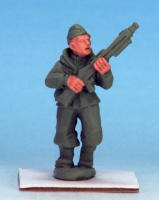

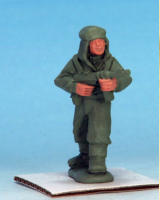
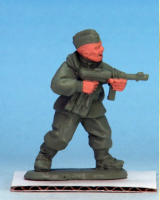
Painting starts with blocking in hands and face with Barbarian Flesh.
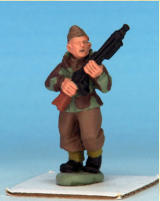
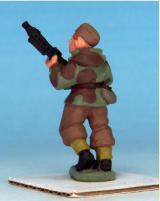
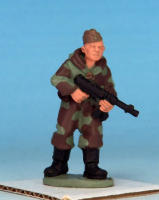

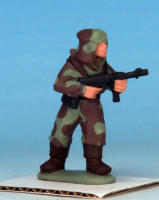
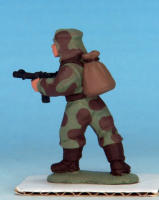
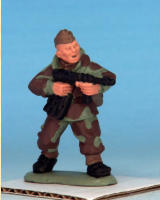
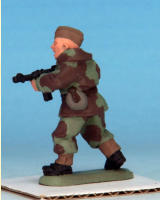
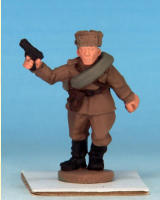
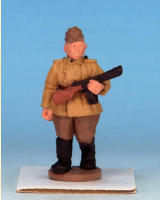
Carry on blocking in is all of the colours neatly ready for
shading.
These are the models primed brown then the other
colours blocked in.
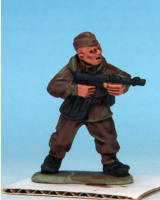

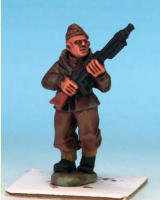
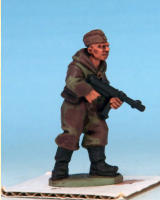
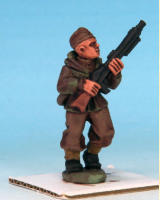
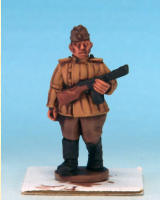
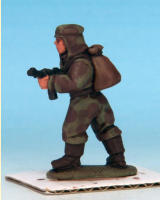
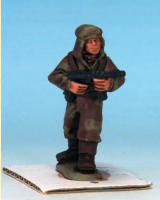
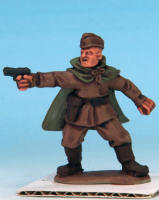
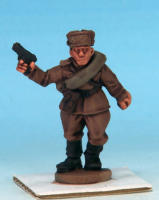
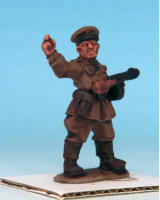
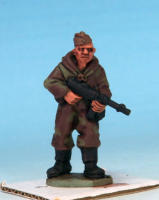
Shading is achieved with the use of a wash; this is a relative thin and semi-transparent paint or ink that allows details to
show through when applied, The Army Painter Quickshade Mid Brown Wash – over everything.
using the same colours as used to start with as a broad highlight, leaving the folds and the recesses in the brown
highlight, leaving the folds and the recesses in the brown washed over colour.
washed over colour.  FINISH HERE
You could stop here, varnish and base them up and have
FINISH HERE
You could stop here, varnish and base them up and have more than respectable troops, you really could, and I think
more than respectable troops, you really could, and I think they look great. Or you can carry on the next and last
they look great. Or you can carry on the next and last painting stage.
painting stage.
 highlight, leaving the folds and the recesses in the brown
highlight, leaving the folds and the recesses in the brown washed over colour.
washed over colour.  FINISH HERE
You could stop here, varnish and base them up and have
FINISH HERE
You could stop here, varnish and base them up and have more than respectable troops, you really could, and I think
more than respectable troops, you really could, and I think they look great. Or you can carry on the next and last
they look great. Or you can carry on the next and last painting stage.
painting stage.

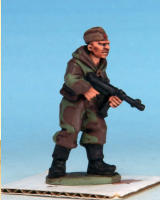
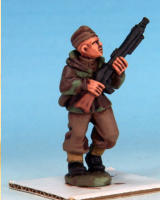
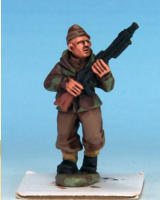
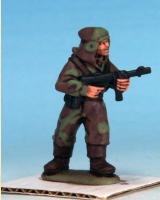
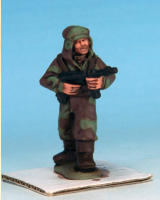
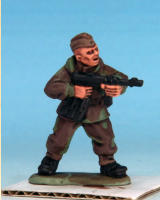
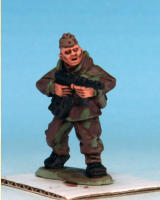
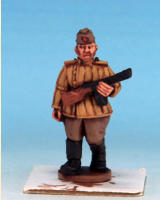
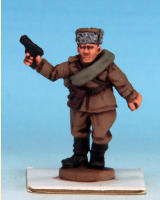
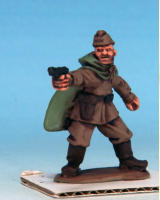
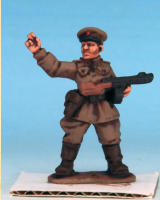
Well it’s not really actual highlighting, paint the colours back in that you have gone over with the brown wash, the same
colours go over where they were before, leaving some of the brown areas in the depressions and creases to give the
shading effect.
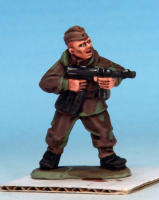

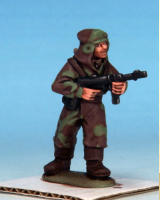
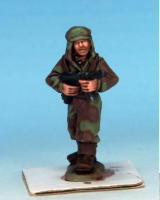
to where to place the highlights, but with a bit of practice it will become easier, probably less is more at this stage.
will become easier, probably less is more at this stage. Also at this stage I popped in some eyes and even some
Also at this stage I popped in some eyes and even some teeth and gave the guns some ware marks in Gun Metal.
teeth and gave the guns some ware marks in Gun Metal. FINISH HERE
That really is the finish of the painting.
FINISH HERE
That really is the finish of the painting. 
 will become easier, probably less is more at this stage.
will become easier, probably less is more at this stage. Also at this stage I popped in some eyes and even some
Also at this stage I popped in some eyes and even some teeth and gave the guns some ware marks in Gun Metal.
teeth and gave the guns some ware marks in Gun Metal. FINISH HERE
That really is the finish of the painting.
FINISH HERE
That really is the finish of the painting. 
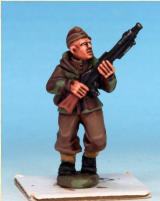
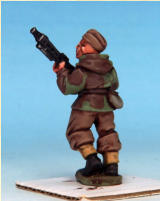
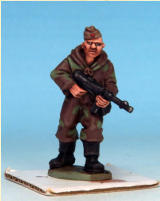
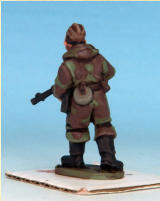

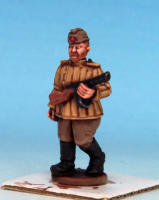
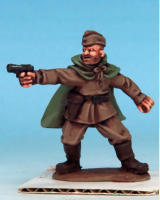
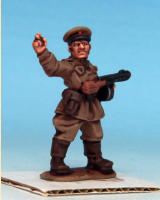
This stage in this painting process is a very final quick proper highlight. This involved adding a small amount of white the
all colours and painting in some of the high points on the folds and creases and edges, and to the high points on the
face, cheek bones, nose and so on.
Then they were given two coats of Anti-Shine Matt Varnish. Be even more careful when painting on the matt
Varnish. Be even more careful when painting on the matt varnish. When applying the matt, brush it out well from
varnish. When applying the matt, brush it out well from any nooks and crannies where it is likely to collect and
any nooks and crannies where it is likely to collect and pool.
FINISH HERE
And that is them finished apart from a decent base. It may
pool.
FINISH HERE
And that is them finished apart from a decent base. It may seem counterintuitive to spend time on a decent looking
seem counterintuitive to spend time on a decent looking base but there are very sound reasons for it. A nice neat
base but there are very sound reasons for it. A nice neat base can make a world of difference to a model no matter
base can make a world of difference to a model no matter what style or finish, and you get to practice dry-brushing,
what style or finish, and you get to practice dry-brushing, an extremely useful technique that will stand you in good
an extremely useful technique that will stand you in good stead in your painting in the future.
stead in your painting in the future.
 Varnish. Be even more careful when painting on the matt
Varnish. Be even more careful when painting on the matt varnish. When applying the matt, brush it out well from
varnish. When applying the matt, brush it out well from any nooks and crannies where it is likely to collect and
any nooks and crannies where it is likely to collect and pool.
FINISH HERE
And that is them finished apart from a decent base. It may
pool.
FINISH HERE
And that is them finished apart from a decent base. It may seem counterintuitive to spend time on a decent looking
seem counterintuitive to spend time on a decent looking base but there are very sound reasons for it. A nice neat
base but there are very sound reasons for it. A nice neat base can make a world of difference to a model no matter
base can make a world of difference to a model no matter what style or finish, and you get to practice dry-brushing,
what style or finish, and you get to practice dry-brushing, an extremely useful technique that will stand you in good
an extremely useful technique that will stand you in good stead in your painting in the future.
stead in your painting in the future.
BASING
The bases are 25mm round plastic. I used superglue to stick the models in place, blowing over them to prevent
stick the models in place, blowing over them to prevent the glue whitening off on the models.
the glue whitening off on the models. I then filled in between the models bases and round base
I then filled in between the models bases and round base with household filler and then left that overnight to go
with household filler and then left that overnight to go hard.
hard.
 stick the models in place, blowing over them to prevent
stick the models in place, blowing over them to prevent the glue whitening off on the models.
the glue whitening off on the models. I then filled in between the models bases and round base
I then filled in between the models bases and round base with household filler and then left that overnight to go
with household filler and then left that overnight to go hard.
hard.
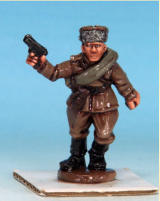
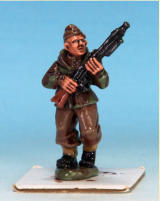
Gloss varnishing. The models were then given a coat of
Humbrol polyurethane gloss varnish; some people like
there toys soldiers in gloss, so you could stop here and
base them up.
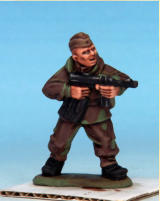
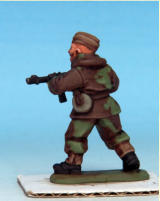
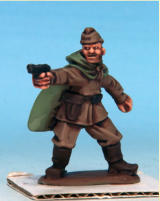
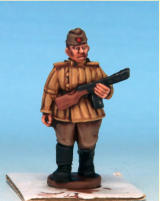
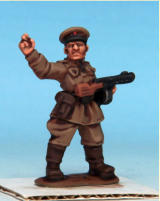
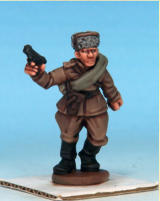
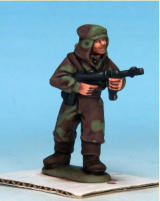
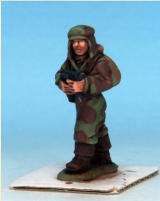
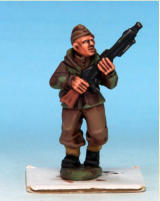
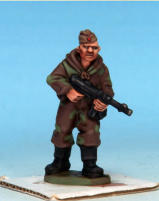
Matt Varnish. They were given two coats of Anti-Shine Matt Varnish. Be even more careful when painting on the matt
varnish. When applying the matt, brush it out well from any nooks and crannies where it is likely to collect and pool.
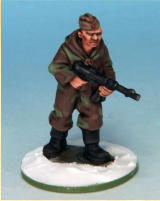
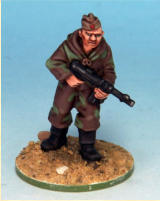
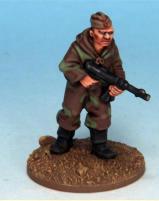
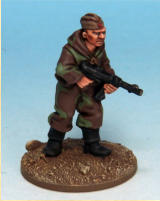
Fill in between the models
bases and round base with
household filler.
Then glue on some sharp
sand with PVA glue.
I then glued on some sharp sand with PVA glue.
When the sand was dried hard I painted the whole base with Leather Brown, I then dry-brushed on Desert Yellow.
with Leather Brown, I then dry-brushed on Desert Yellow.  I then dry-brushed on lightly, Skeleton Bone.
I then dry-brushed on lightly, Skeleton Bone.  I then added some flora. Tufts from Gamers Grass, and
I then added some flora. Tufts from Gamers Grass, and they are ready for battle!
they are ready for battle! 
 with Leather Brown, I then dry-brushed on Desert Yellow.
with Leather Brown, I then dry-brushed on Desert Yellow.  I then dry-brushed on lightly, Skeleton Bone.
I then dry-brushed on lightly, Skeleton Bone.  I then added some flora. Tufts from Gamers Grass, and
I then added some flora. Tufts from Gamers Grass, and they are ready for battle!
they are ready for battle! 
FINISH HERE
Finally that is them finished, to a very pleasing standard I hope you will agree, while still be many many times faster
hope you will agree, while still be many many times faster than normal for me, or it would be if I didn’t write about it!
than normal for me, or it would be if I didn’t write about it! 
 hope you will agree, while still be many many times faster
hope you will agree, while still be many many times faster than normal for me, or it would be if I didn’t write about it!
than normal for me, or it would be if I didn’t write about it! 
Paint the whole base with Leather Brown, then dry-brush
on Desert Yellow.
Then dry-brush on lightly, Skeleton Bone.
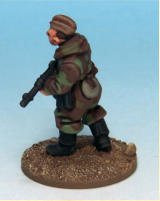
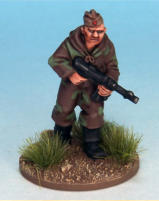
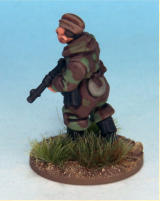
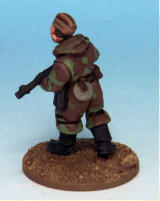
Add some flora Tufts from Gamers Grass, and they are
ready for battle!
FASTER
What is described here is a fast style of painting, but it is not the quickest style I use, that I have written about in a
not the quickest style I use, that I have written about in a long series articles starting here.
long series articles starting here.
 not the quickest style I use, that I have written about in a
not the quickest style I use, that I have written about in a long series articles starting here.
long series articles starting here.
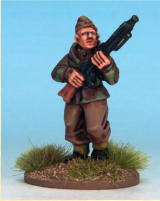
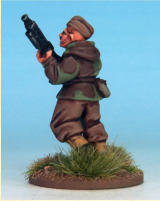
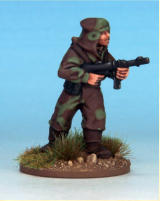
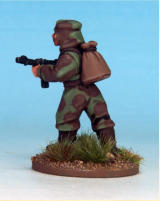
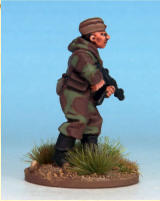
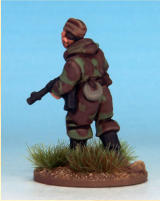
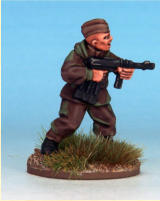
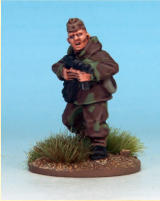
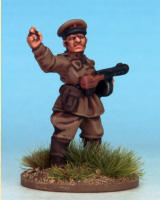
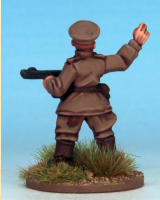
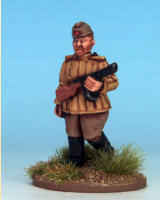
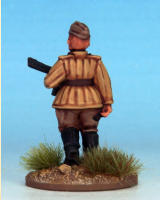
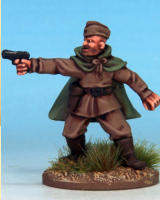
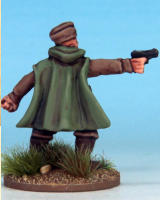
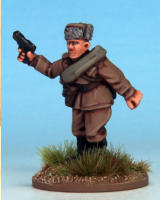
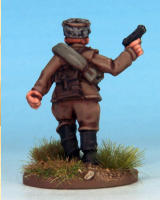
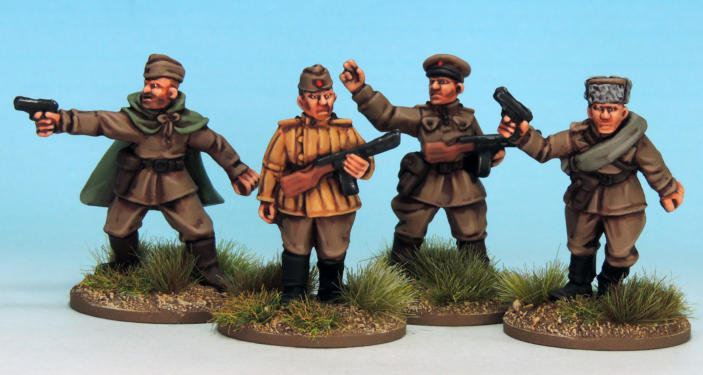
WW2 Soviet Characters.
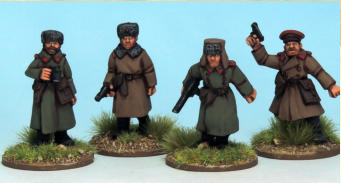

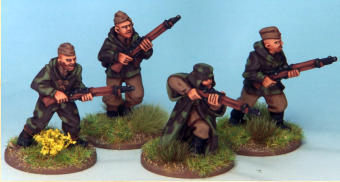
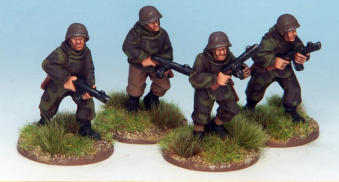
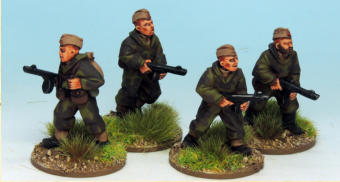
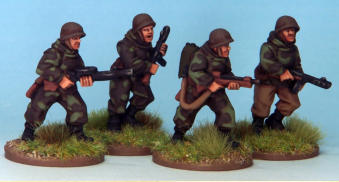
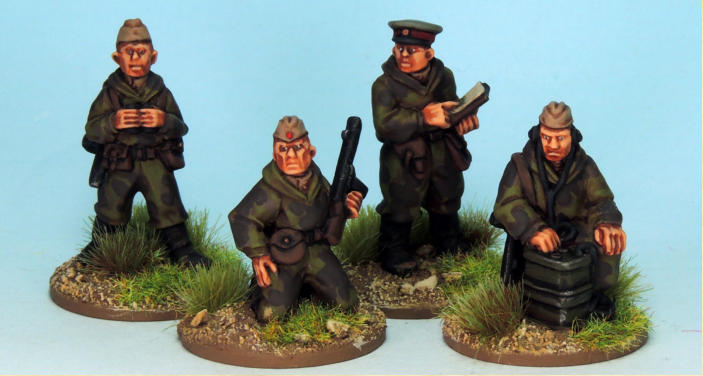
Soviet Command (Winter Gear).
Soviet Scouts.
Soviet Assault Engineers.
Soviet Scouts with Rifles.
Soviet Assault Engineer Support Weapons.
Soviet Scouts with SMG.
Soviet Scout Command
















